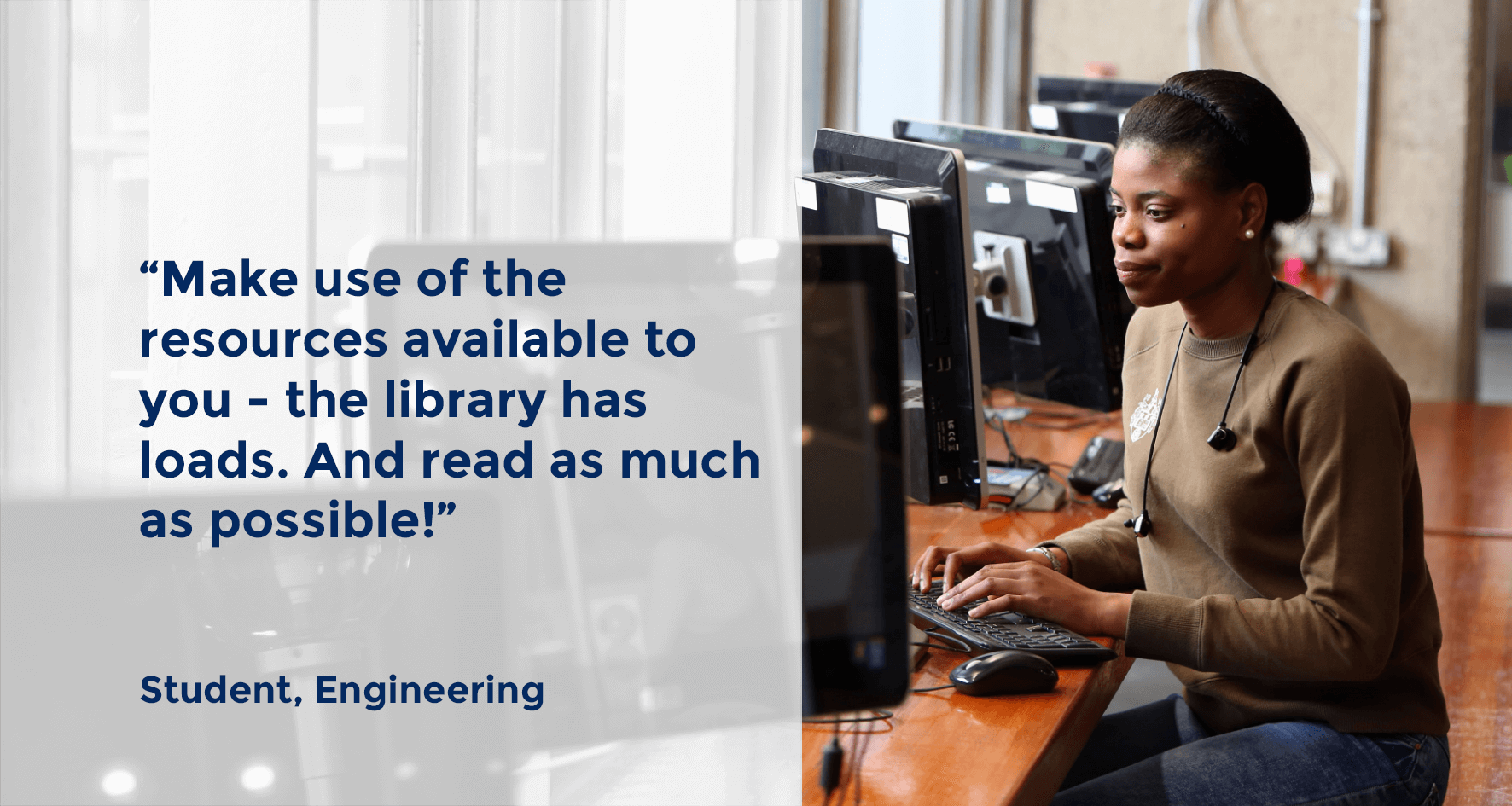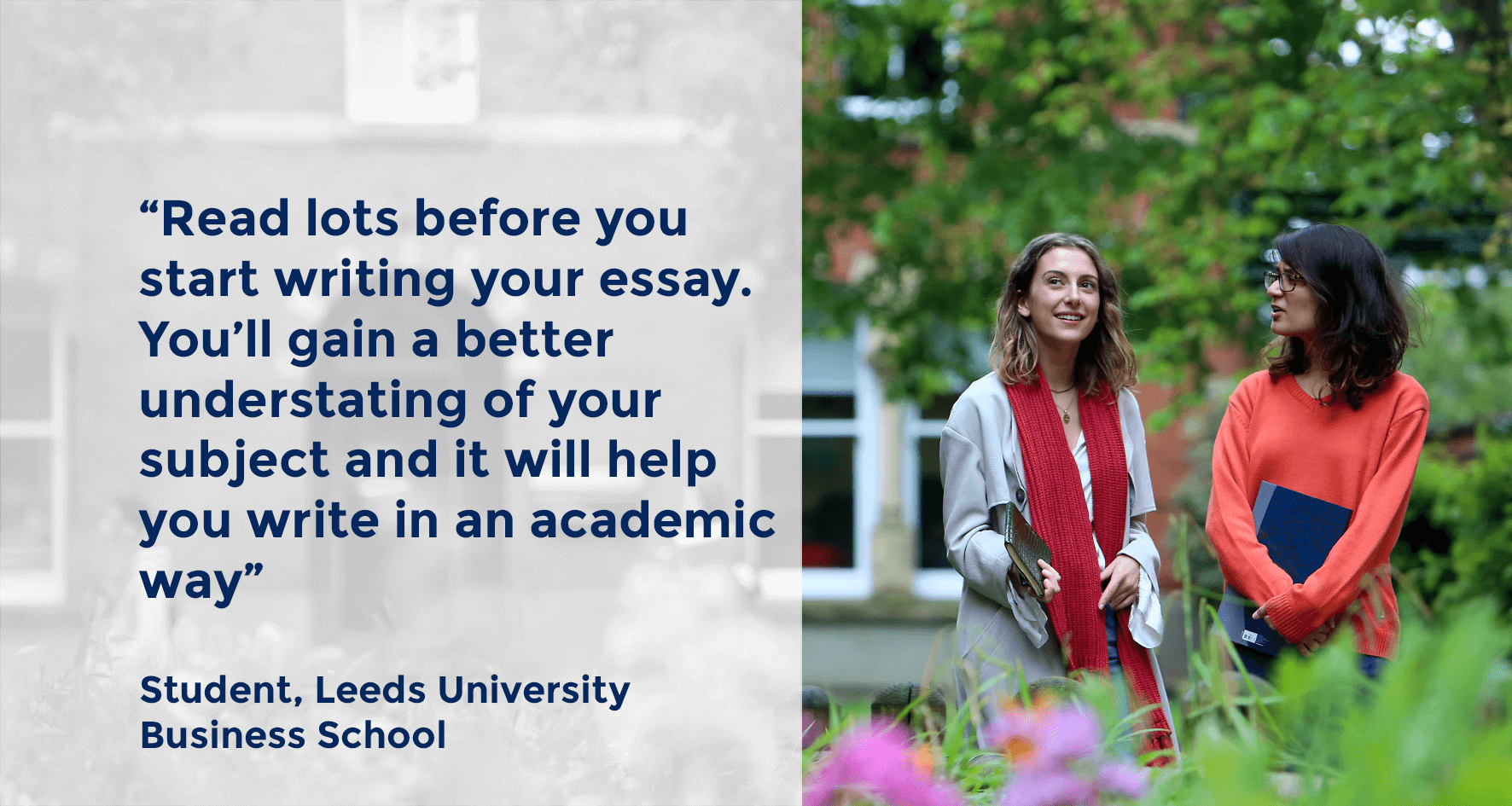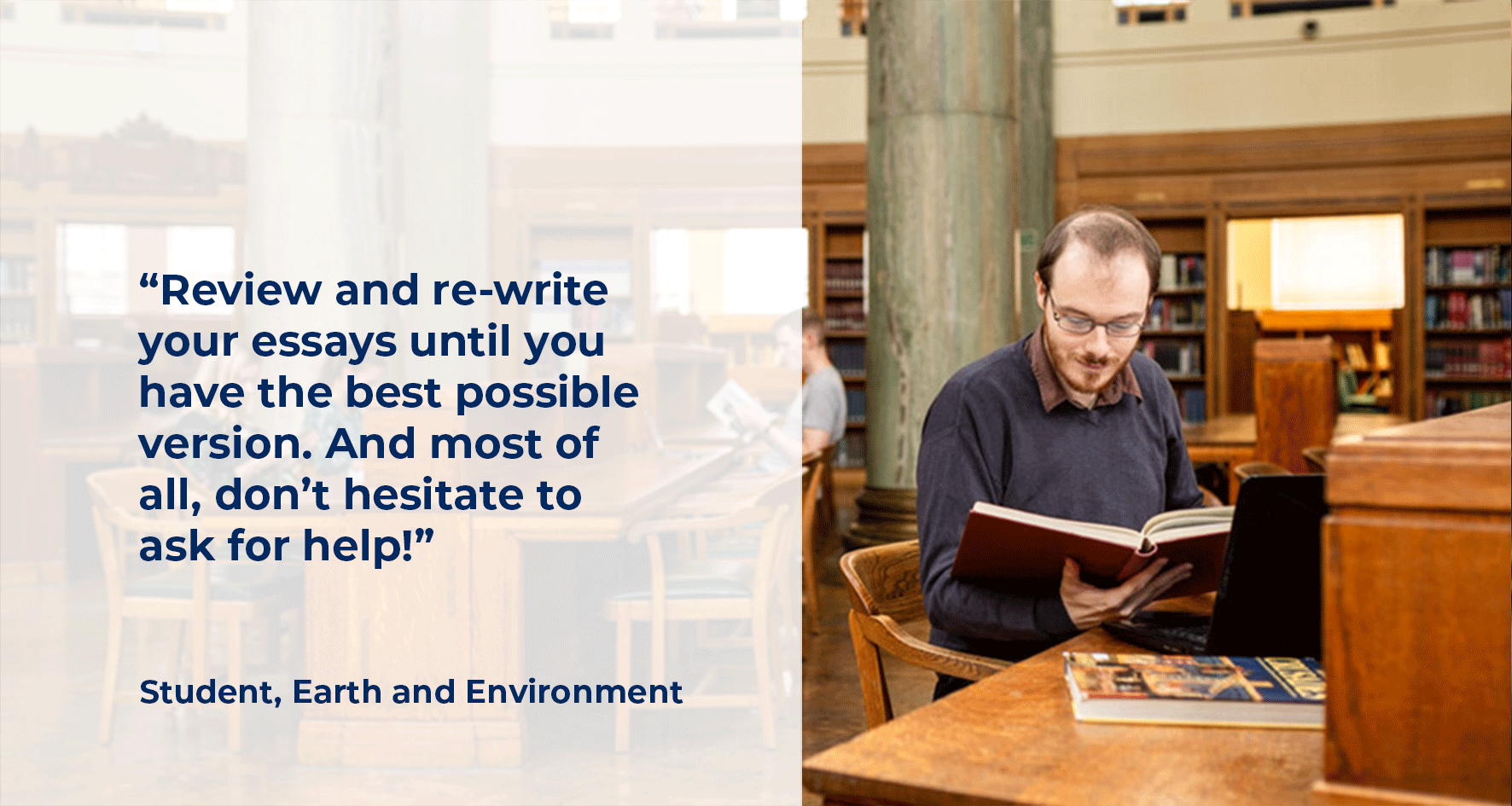As a Masters student, you will have to deal with a large amount of academic literature and many sources of information. It can be challenging to process a large volume of complex information and, at the same time, develop a coherent and cohesive argument of your own. You may feel like you need to read more before you can start writing. This is perfectly normal at Masters level, where the complexity of the issues you are exploring means that it is necessary to accept that there is often no one, clear, solution.
A useful way to combine thinking and writing about a topic, is by setting boundaries for your assignments. It is also important to determine what is achievable within your word limit. Your ability to measure this should improve as you become more familiar with your subject.
Students will often change their thoughts about a topic during the process of writing. This is perfectly common at Masters level. Factoring in enough time for such changes when planning for your assignment is key to avoid last-minute panic. Don’t forget, as well as your knowledge and understanding of the topic, you are being assessed on your ability to deal with complexity, and to accept ambiguity, when developing your arguments.
Tips
- Accept ambiguity - a topic may be approached from a number of different, but equally valid, perspectives by different authors
- Develop your own line of argument through research and reading on a topic
- Set boundaries for your assignments, taking into account timescales and word limits
'Your voice' at Masters level is demonstrated by your ability to present a clear line of argument based on appropriate evidence. Your tutor will not instruct you to argue specific points, and there is no “correct” answer. In certain science and data-related disciplines, while there will be correct answers to certain equations, your tutor will often be interested in seeing how you arrived at your answers. You will be expected to read a wide range of material, both texts recommended by your tutors and texts which you have identified yourself, to develop an evidence-based perspective.
Your academic voice is established through your interpretation and creative application of sources in the construction of your arguments. These arguments may be based upon a combination of academic literature, data and laboratory or fieldwork findings. You will develop confidence in your academic voice as you research and read about a topic. At Masters level, it is common to devise your own assignment questions. This will generally involve identifying an area of investigation, agreeing it with your tutor, and then pursuing it independently.
Your academic voice will develop and become more refined as you progress through your Masters degree, culminating in your final project, when you will have the opportunity to undertake comprehensive academic research independently.
Video - Leeds academics discuss what they think 'your voice' means for a Masters student.
Tips
- Accept ambiguity - a topic may be approached from a number of different, but equally valid, perspectives by different authors, and remember, there is no single 'correct' answer to a question
- Compare and contrast a wide range of sources when approaching a topic
- Note down questions that arise during your reading, and explore which of them could be developed into assignment questions, or even the topic of your research project
Given the intensity of the workload and the complexity of academic information, it is crucial that you plan and approach assignments in a structured way. Your line of argument needs to be based on targeted research and reading, and should have a clear and logical structure, so that the readers can follow its development easily. Remember, clarity in your planning and thinking process will likely translate into well-structured writing.
The key stages of planning and structuring an argument are:
- Break down your question into keywords/phrases and ensure that you research every key element
- Based on your initial research, plan an outline of how you will answer the question and develop your argument
- Read actively, make notes and cross-check between different sources to make connections
- After more in-depth research and reading, think of the different points that would support your argument and organise them into paragraphs
- Consider points that counter your argument and note how you would respond to them
Through the development of your argument, you will be expected to synthesise sources. Synthesis involves bringing together various viewpoints into a coherent and cohesive argument. In this way, you can demonstrate a high level of criticality and show that you have evaluated the information, rather than accepting it at face value. You may want to go back to the Thinking Critically section of this resource for more tips on how to evaluate and to show your critical engagement with the sources.
Video - Leeds academics discuss the importance of constructing a well-structured argument in academic writing at Masters level.
Tips
- Ensure that you construct an argument based on relevant evidence, rather than merely demonstrating everything you know about a topic
- Signpost the development of your argument. Check the links between paragraphs are clear and logical
- Do not separate reading from writing. Make notes and build your paragraphs as you read
- Leave plenty time to draft and re-draft your work
It is common to become very interested in particular ideas during your Masters study and research. Sometimes, this can take up too much of your time, which may negatively impact on your workload balance. Be aware of this potential risk and find a balance between pursuing specific ideas and being realistic with what you can achieve at Masters level. Remember, there is always time after your Masters to pursue your areas of interest (perhaps through doctoral study here at Leeds)!
When writing at Masters level, students often feel the need to use complicated language in order to come across as “more academic”. Doing so often dilutes the central argument. Effective academic writing should be clear and concise. Note, for example, the difference between the two extracts below:
“Due to the fact that access to internet resources is actually at the present time very easy to get hold of in many places, the vast majority of users seek to have those kinds of devices that are most easy to carry around with them wherever they go” (48 words).
=
“Now that internet access is available in most places, users often prefer to use portable devices” (16 words)
The second extract concisely presents the findings of the first, in a third of the word count. While conciseness increases the effectiveness of academic writing, it is also important to be precise. For example, although the sentence below is grammatically sound, it is academically poor:
“The policy has been discussed by many theorists over the years.”
There are three items in the above sentence that are not clear: which policy, who are the theorists under discussion, and since when.
Here is a better example:
“The Advance HE wellbeing agenda (2017) has been scrutinized by Allen (2017) and Furedi (2017).”
This sentence is concise, precise and well referenced. Demonstrating an effective academic voice at Masters level does not require the use of over-complicated sentences. Instead, shorter and simpler sentences can often convey better understanding.
Tips
- Use clear, precise and simple language whenever possible
- Avoid using vague expressions, for example, “Many thinkers discuss this”. Instead, be specific
- Choose appropriate reporting verbs, adjectives and hedging language to articulate your evaluation of sources
- Familiarise yourself with our advice on academic writing and attend relevant Skills@Library workshops to develop areas that you are unsure about, for example, essay structuring or academic language
Video - Leeds students share their experience of academic writing at Masters level and how they have developed their academic voice and confidence. Click to download a full transcript of this video.


